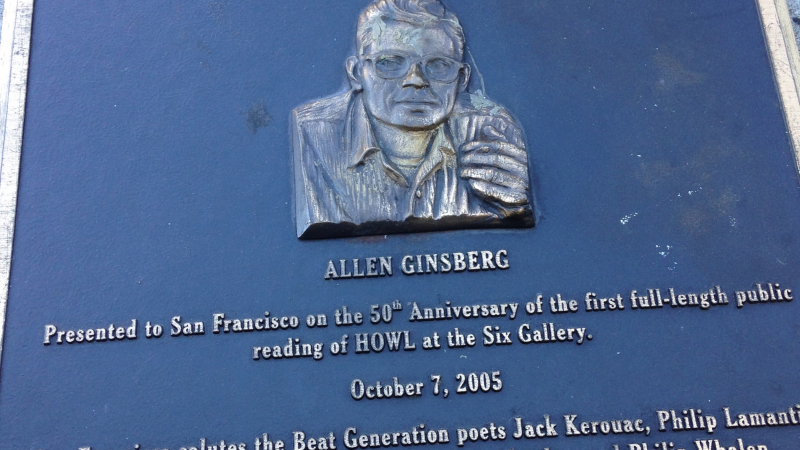What the Battle To Publish Allen Ginsberg's 'Howl' Means to Today's Free-Speech Struggles
The People v. Lawrence Ferlinghetti explains how America embraced free speech—and how we're ready to throw it away.

I saw the best minds of my generation destroyed by madness, starving hysterical naked,
dragging themselves through the negro streets at dawn looking for an angry fix,
angel-headed hipsters burning for the ancient heavenly connection to the starry dynamo in the machinery of night…
Those are the opening lines to Allen Ginsberg's "Howl" (1955–56), a poem which helped kickstart a major cultural and legal transformation in America, one that made our country looser, hipper, and much more at peace with all sorts of alternative lifestyles, libertine sexualities, and, perhaps most important, speech that was profane, raucous, inventive, and unrestrained—what Ginsberg's fellow Beat Jack Kerouac called "spontaneous bop prosody."
Immediately upon the debut of "Howl" in print, Ginsberg's publisher—Lawrence Ferlinghetti of City Lights Books—was hauled into court on obscenity charges in San Francisco, a town that was at the time known to be particularly uptight and conservative. The trial, which ended in a surprising verdict of not guilty, helped to usher in a new era of free speech in America.
But is the era of free speech ending? Everywhere we look, it seems, there are more and more attempts to shut down offensive and provocative speech. Sometimes, this is done in the name of protecting kids or the sensibilities of marginalized ethnic, religious, and sexual minorities. Other times, calls for censorship are made in the name of protecting the political process from "dark money" or foreign influence, or in the name of national security.
On today's podcast, Nick Gillespie speaks with Ronald K.L. Collins, a lawyer and scholar at the Newseum's First Amendment Law Center and the author of a weekly blog called First Amendment News. He's also the co-author with David M. Skover of The People v. Lawrence Ferlinghetti: The Fight to Publish Allen Ginsberg's "Howl," a fast-paced history of the obscenity trial that ended in a watershed victory for free expression. A poet in his own right—his A Coney Island of the Mind has sold over one million copies—Ferlinghetti remains at 100 years old an amazing character: a World War II battle veteran turned pacifist, a civil libertarian, and a socialist. Gillespie talks with Collins about the enduring relevance of Ferlinghetti's trial to contemporary attempts to shut down speech and expression that some people find offensive.
Subscribe, rate, and review our podcast at iTunes.
Audio production by Ian Keyser.


Show Comments (114)